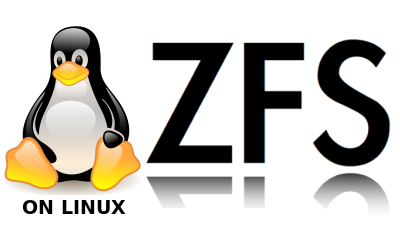1 2 3 4 5 6 7 8 9 10 11 12 13 14 15 16 17 18 19 20 21 22 23 24 25 26 27 28 29 30 31 32 33 34 35 36 37 38 39 40 41 42 43 44 45 46 47 48 49 50 51 52 53 54 55 56 57 58 59 60 61 62 63 64 65 66 67 68 69 70 71 72 73 74 75 76 77 78 79 80 81 82 83 84 85 86 87 88 89 90 91 92 93 94 95 96 97 98 99 100 101 102 103 104 105 106 107 108 109 110 111 112 113 114 115 116 117 118 119 120 121 122 123 124 125 126 127 128 129 130 131 132 133 134 135 136 137 138 139 140 141 142 143 144 145 146 147 148 149 150 151 152 |
Contributing to ZFS on Linux
First of all, thank you for taking the time to contribute! By using the following guidelines, you can help us make ZFS on Linux even better. Table Of ContentsWhat should I know before I get started? Helpful resources What should I know before I get started?Get ZFSYou can build zfs packages by following these instructions, or install stable packages from your distribution's repository. Debug ZFSA variety of methods and tools are available to aid ZFS developers.
It's strongly recommended that when developing a patch the
In addition, there are numerous utilities and debugging files which provide visibility in to the inner workings of ZFS. The most useful of these tools are discussed in detail on the debugging ZFS wiki page. Where can I ask for help?The mailing list is the best place to ask for help. How Can I Contribute?Reporting BugsPlease contact us via the mailing list if you aren't certain that you are experiencing a bug. If you run into an issue, please search our issue tracker first to ensure the issue hasn't been reported before. Open a new issue only if you haven't found anything similar to your issue. You can open a new issue and search existing issues using the public issue tracker. When opening a new issue, please include the following information at the top of the issue:
When a new issue is opened, it is not uncommon for developers to request additional information. In general, the more detail you share about a problem the quicker a developer can resolve it. For example, providing a simple test case is always exceptionally helpful. Be prepared to work with the developers investigating your issue. Your assistance is crucial in providing a quick solution. They may ask for information like:
Suggesting EnhancementsZFS on Linux is a widely deployed production filesystem which is under active development. The team's primary focus is on fixing known issues, improving performance, and adding compelling new features. You can view the list of proposed features by filtering the issue tracker by the "Feature" label. If you have an idea for a feature first check this list. If your idea already appears then add a +1 to the top most comment, this helps us gauge interest in that feature. Otherwise, open a new issue and describe your proposed feature. Why is this feature needed? What problem does it solve? Pull Requests
TestingAll help is appreciated! If you're in a position to run the latest code consider helping us by reporting any functional problems, performance regressions or other suspected issues. By running the latest code to a wide range of realistic workloads, configurations and architectures we're better able quickly identify and resolve potential issues. Users can also run the ZFS Test Suite on their systems to verify ZFS is behaving as intended. Style GuidesCoding ConventionsWe currently use C Style and Coding Standards for SunOS as our coding convention. |
 |
index : openzfs/zfs.git | |
| Unnamed repository; edit this file 'description' to name the repository. |
| aboutsummaryrefslogtreecommitdiffstats |
blob: a7d2bd4d700f1b2e696d95d5663d890d1d02739a (plain)
